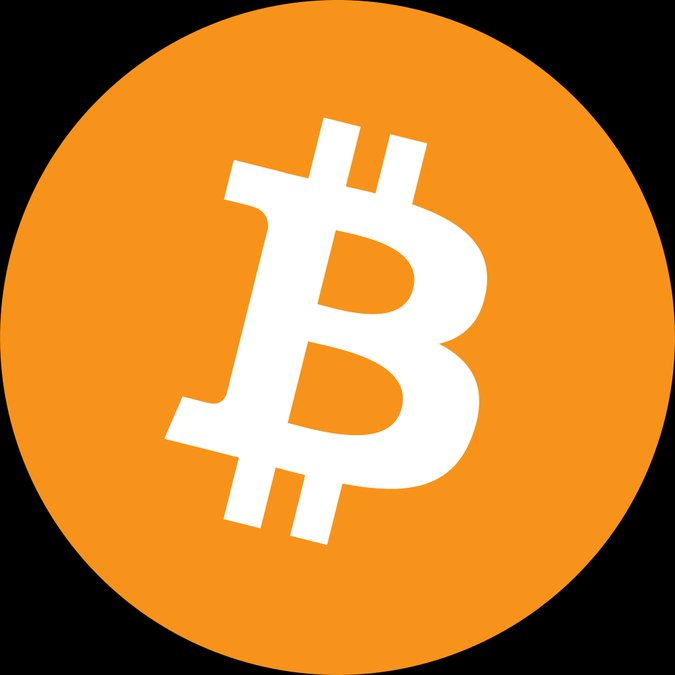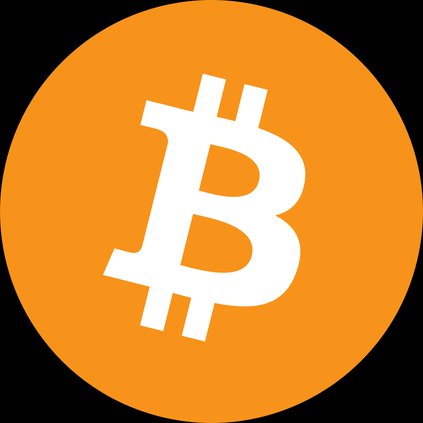Earlier this month, Great Bend was one of hundreds of cities targeted by a wave of bomb threats which may have been a Russian email scam. Several businesses and organizations across the country received emails informing them that bombs had been placed in their buildings, and $20,000 in Bitcoin was demanded to stop the bombs from detonating.
Authorities determined the bomb threat was a hoax. But, after the dust settled, it left many scratching their heads about what Bitcoin is. For those who understand how to use it, Bitcoin can be traded instantaneously in any amount, without third-party involvement, making it essentially impossible to trace.
We asked around the Great Bend area, speaking to bankers and other finance experts. While most had rudimentary knowledge of what Bitcoin is and how it is created, none had any concrete experience with the cryptocurrency, so declined to be quoted for this story. We widened our net, requesting input from a Kansas State University professor and finance expert, D. Elizabeth Kiss, Ph.D. While she had little knowledge of bitcoin, she offered a 2015 Extension publication, “Virtual Economics: Bitcoin and Beyond” that included some Bitcoin basics. It outlined how Bitcoin works, and how the cryptocurrency can, at least in theory, be used to actually purchase tangible items, as well as a lot of other valuable information.
We set out to learn what we could through other sources, and through first-hand experience. Our goal: to determine what Bitcoin is and see if it works just like traditional currency.
Locally, interest is lukewarm
Darcy Leech, owner of Mind Sculpt Games in Great Bend, said she considered setting up an in-store kiosk and accepting Bitcoin from customers, but decided against it.
The instability and volatility of the market was her top concern, with Bitcoin’s value dropping as newer alternate currencies come online. Also, the question of how often the money represented could turn over in the local economy was uncertain. The kiosk they were considering was one where customers could convert cash to Bitcoin for a flat 1.5 percent fee.
“If customers spent money at our kiosk in Great Bend, we didn’t think we would see a large percentage of that spent with us in our shop or at other areas in our community,” she said.
Leech cited one other reason. Bitcoin’s early reputation as a payment method on the Dark Web wasn’t what she wanted to have associated with Mind Sculpt Games.
“It just wasn’t the right fit for us right now,” she said.
Interestingly, there is a connection between Bitcoin and the collectible card game value markets.
“They seem to have a lot of similar investors,” Leech said. “As Bitcoin values went up, the value of a lot of scarce and highly valuable, sought-after trading cards from Magic: The Gathering, also went up.”
She is aware of others in her field who have invested in Bitcoin. If it showed as much promise as a year ago, she might give it a second look, she said, but for now, the U.S. dollar is more her speed.
LibertyX markets the kiosk that Leech had considered. We downloaded the app, and our Great Bend zip code brought up the Loves’ Country Store located at 1221 10th Street as the nearest location where purchasers can exchange cash for Bitcoin. The app indicated a fee of $5.00 plus 1.85 percent would be charged.
When we arrived at the store the attendant was unaware Bitcoin could be purchased there. He attempted to contact a manager, but to no avail. There was no LibertyX kiosk to be found.
Following up, we contacted Love’s corporate office, but were directed to the voicemail of an executive there; our call was not returned. At least for now, purchasing in cash locally doesn’t appear to be possible.
Breaking into Bitcoin
There’s more than one way to fill your wallet with Bitcoin. With the right software, working on the right hardware, you can solve puzzles creating money out of thin air.
Here, again, is where the gaming world and the world of cryptocurrencies cross paths. Great Bend Tribune reporter Russ Edem is an avid gamer. He customizes and builds his own computers so he can play at top speed. He’s found that the cost of video cards has gone up as the popularity of Bitcoin increases. That’s because of how Bitcoins are created. According to a 2013 Popular Mechanics article, “How to spend a Bitcoin,” units of the cryptocurrency are created by solving math problems.
“Bitcoin ‘miners’ create new coins by solving complicated cryptographic proof-of-work verifications of every Bitcoin transaction. Those calculations simultaneously maintain the peer-to-peer Bitcoin network and, for those who solve the calculations, earn them freshly minted Bitcoins.”
Mining Bitcoin requires the kind of power and speed found in video cards in order to crunch the numbers and solve increasingly complicated computations.
But, what about if you don’t have the resources to mine Bitcoin?
You can purchase Bitcoin with traditional money from your bank account, via a middleman using a debit or credit card, just like any other internet purchase. But first, you need to set up a “wallet” to hold it in. We chose Coinbase.com. On Monday, Dec. 17, this reporter invested $15 in U.S. dollars to get it started. It worked just like setting up a regular internet checking account.
Right away, the value dropped from $15 to $13.46. Still, we weren’t deterred. The next morning, our Bitcoin value had climbed a little to $13.70, but our attempt to make a purchase on Overstock.com was unsuccessful. We received an initial email and text stating that the $13 item we ordered would be shipped shortly. But about seven hours later, we received an email and text that said our order had been canceled because our account could not be verified. Clearly, transactions with Bitcoin are far from seamless.
By Thursday, our value had climbed to $17.13, a little over 5 percent. An hour later, it was down to $16.48. That’s one of the biggest criticisms about the currency — too much fluctuation in value.
Coinbase also allows account holders to convert holdings in Bitcoin to other cryptocurrencies at no charge. We tried this, and within seconds we’d converted our Bitcoin to Bitcoin Cash. Like stocks in the stock market, the values of each went up and down independently of the other; so if we wanted to, we could conceivably see significant increases or losses, but that is beyond the scope of our stated goals.
Then we converted it back in order to try another Overstock.com purchase. Again, the transaction appeared complete. We received an initial positive email response. A few minutes later, we received a text from Overstock stating the purchase had been confirmed, just like the previous transaction. Then, we texted customer service.
“I see that this item is still processing, it takes 24-48 hours to process,” was the response.
Bitcoin, like the Ford Model T, works, but its far from the seamless currency it claims to be.
The equivalents of things like brakes, safety belts, speedometers and operators manuals still need to be considered.
But keep in mind, for many countries in the world that do not have the luxury of a stable economic system, Bitcoin offers hope, and it’s likely here to stay.
Still, we don’t recommend you sell your gold just yet.
With little local Bitcoin expertise, we turned to TED
After asking local financial experts about their experience with Bitcoin and turning up empty handed, we turned to the internet. A search turned up several TED Talks that helped explain what Bitcoin is, and how blockchain works. Blockchain is the technology that both masks and verifies information, and makes cryptocurrencies like Bitcoin work. This helped us get our feet wet. You can find the ones we watched, and several more at Ted.com.
Blockchain makes it possible
Every time a transaction in Bitcoin takes place, a file is created that is attached in line with every other transaction in the chain’s history. To create the file, both parties record the transaction, signing it with their unique “key.” Once verified, it’s given a hash, and it takes it’s place in the next spot on the chain. That file is then recorded in what Luke Fortney, writing for Investopedia, called a distributed, decentralized, public ledger. The ledger is then distributed to every other user intantly and electronically. It can’t be altered or changed without requiring the change to be recorded on every individual network computer in the world.
Consider newspapers, for example. Once a story is published it’s distributed to every subscriber. You can’t change it or alter it without having to find every other copy of that edition and make the change and then slip it back into the hands of the owner unnoticed. Once it’s in print, it’s forever. The blockchain works pretty much the same way.
“The only reason anything has value is because we have decided that it does,” said currency futureist Neha Narula in her TED Talk, “The future of money.”
She points out that already, many of the transactions we complete in dollars happen digitally. Direct deposit, online payments, online deposits are all examples.
But traditional fiat currency (backed by a government), banks and securities brokers are the middlemen, the gatekeepers so to speak, verifying the transactions. Compared to the one-to-one transactions of the blockchain, they are slow and expensive, creating friction that technology has made obsolete.
Good for more than just money
Don Tapscott, a digital strategist and the Executive chairman of the Blockchain Research Institute, explained further in his TED talk,“How the blockchain is changing money and business.”
He compared the current financial services industry to a Rube Goldberg machine. Like Narula, Tapscott stresses that middlemen are used today to ensure that when money changes hands, the receiver knows it’s not merely a counterfeit copy, and the payor still has it to spend elsewhere. Blockchain makes these middlemen obsolete.
Tapscott proposes that blockchain technology is not only a great way to make financial transactions, it can change the world in more ways.
Without getting too far into the weeds, Tapscott says blockchain technology can be used to protect property rights through immutable records, create value for all persons involved in the sharing economy, elliminate the middleman for remittances, allow individuals to monetize their personal data and protect their privacy, and ensure creators of valuable works like music and art are compansated for their creations.
Purchasing bitcoin can be done using traditional fiat currency through a cryptocurrency wallet. It’s a lot like investing in the stockmarket.
You decide what currency you want, you put in an order for it, and when the transaction is complete, you have an amount of that currency in your account. It’s value fluctuates from day to day, and the wallet company likely will take a cut from your initial investment.
Unlike investing in stocks, however, you can use Bitcoin to purchase items or services from retailers or restaurants set up to accept Bitcoin.
We searched the web and found Love’s, Subway and Overstock.com accept Bitcoin as direct payment, and others are coming online slowly but surely.





